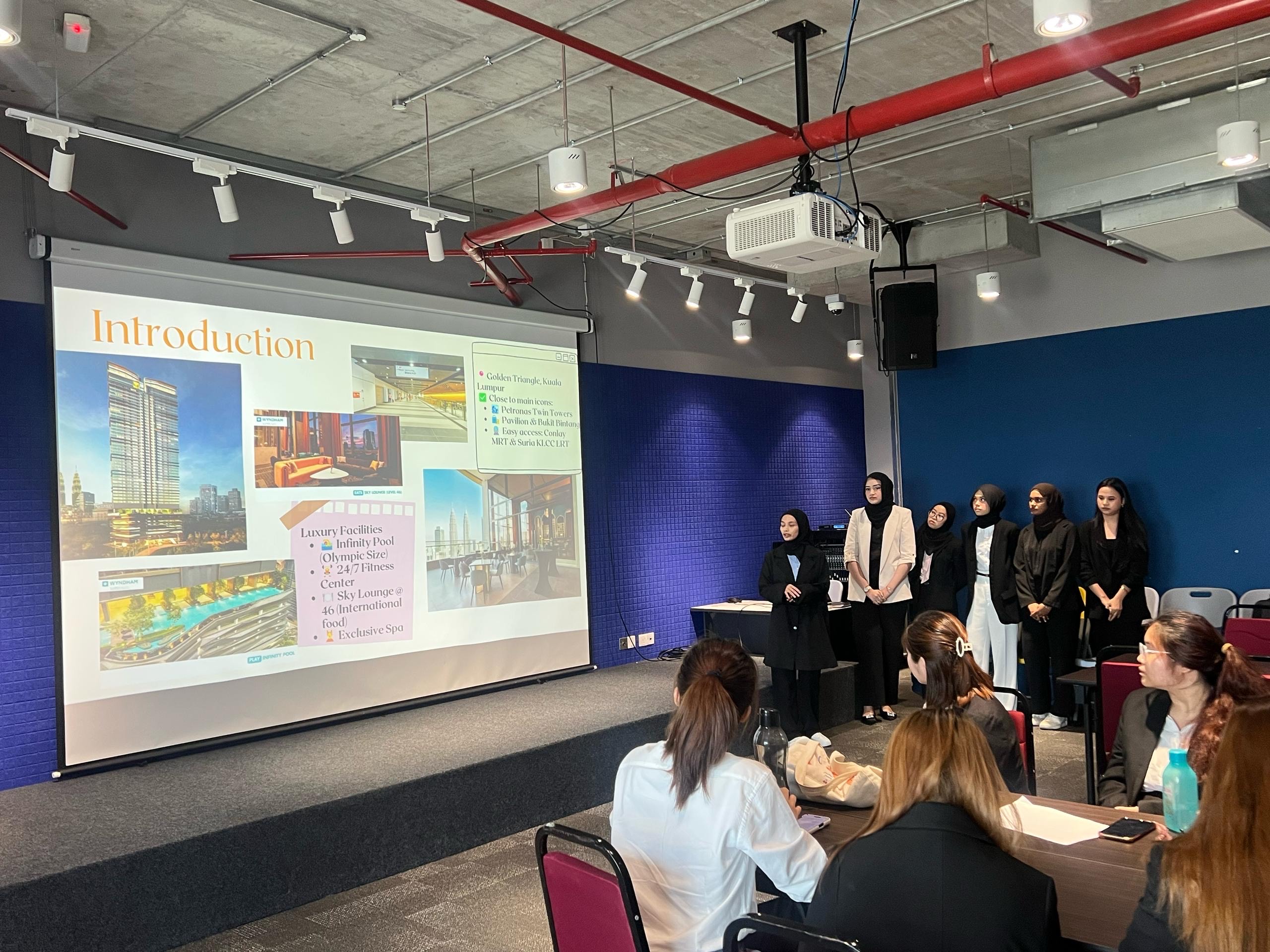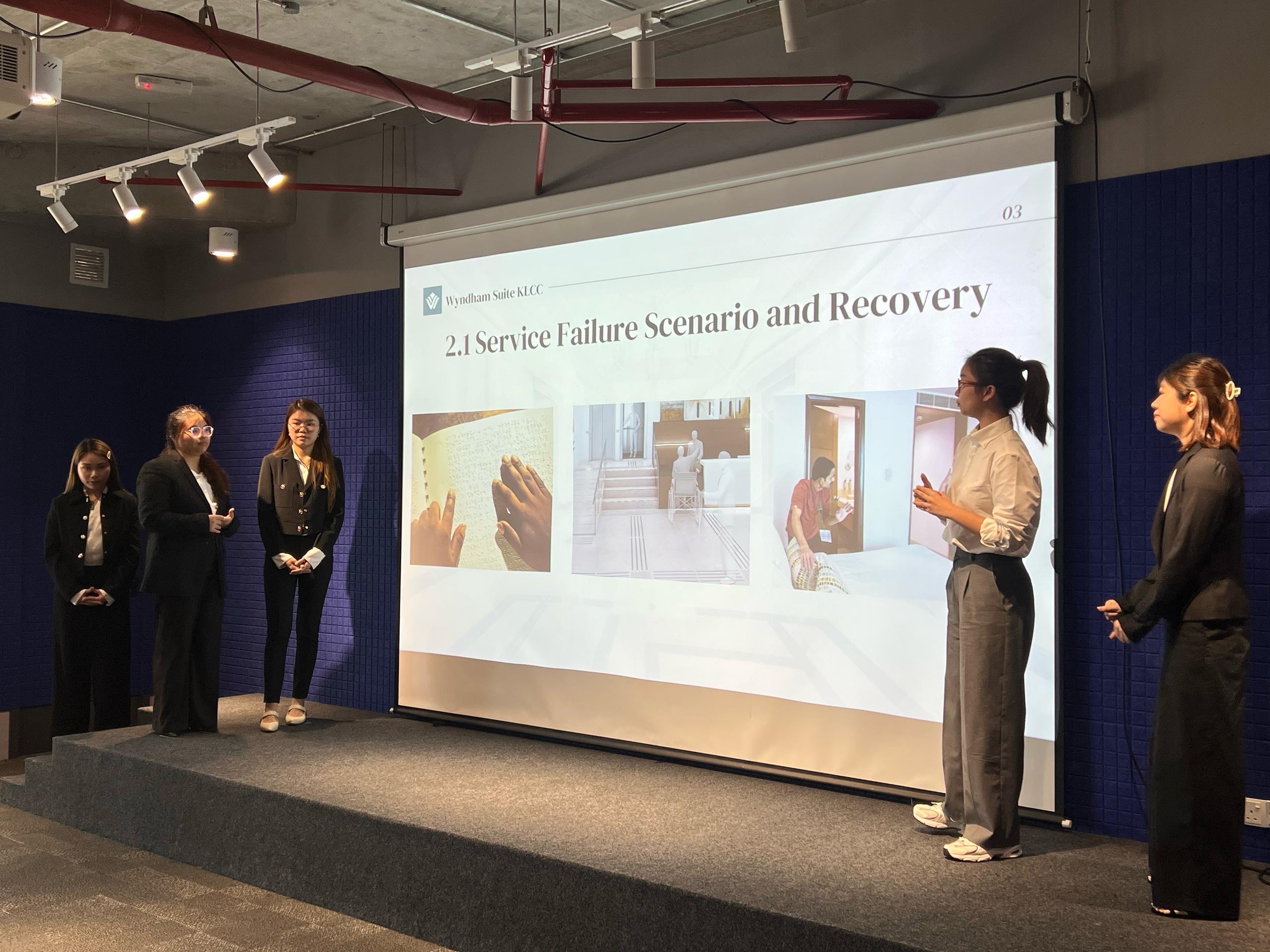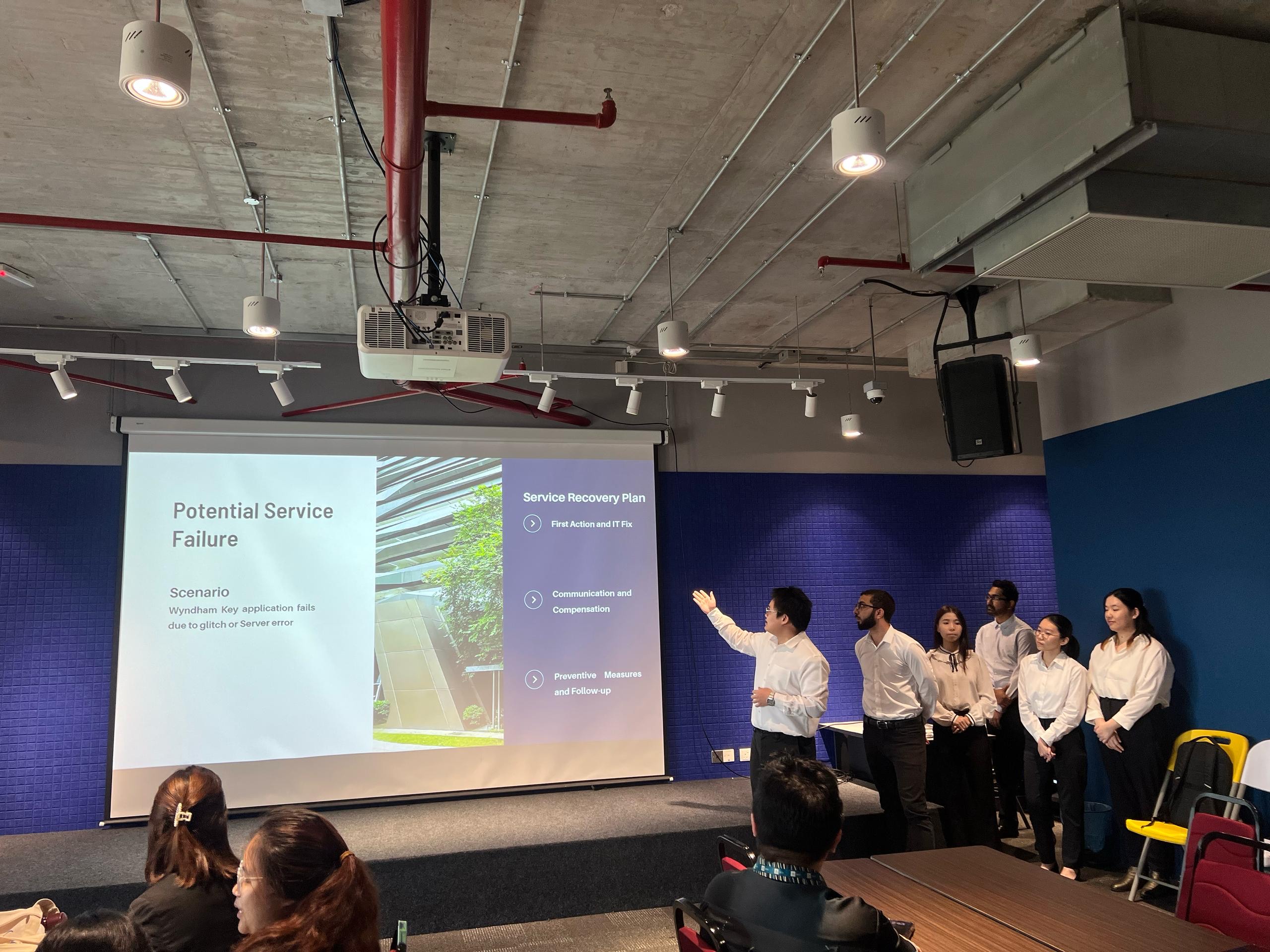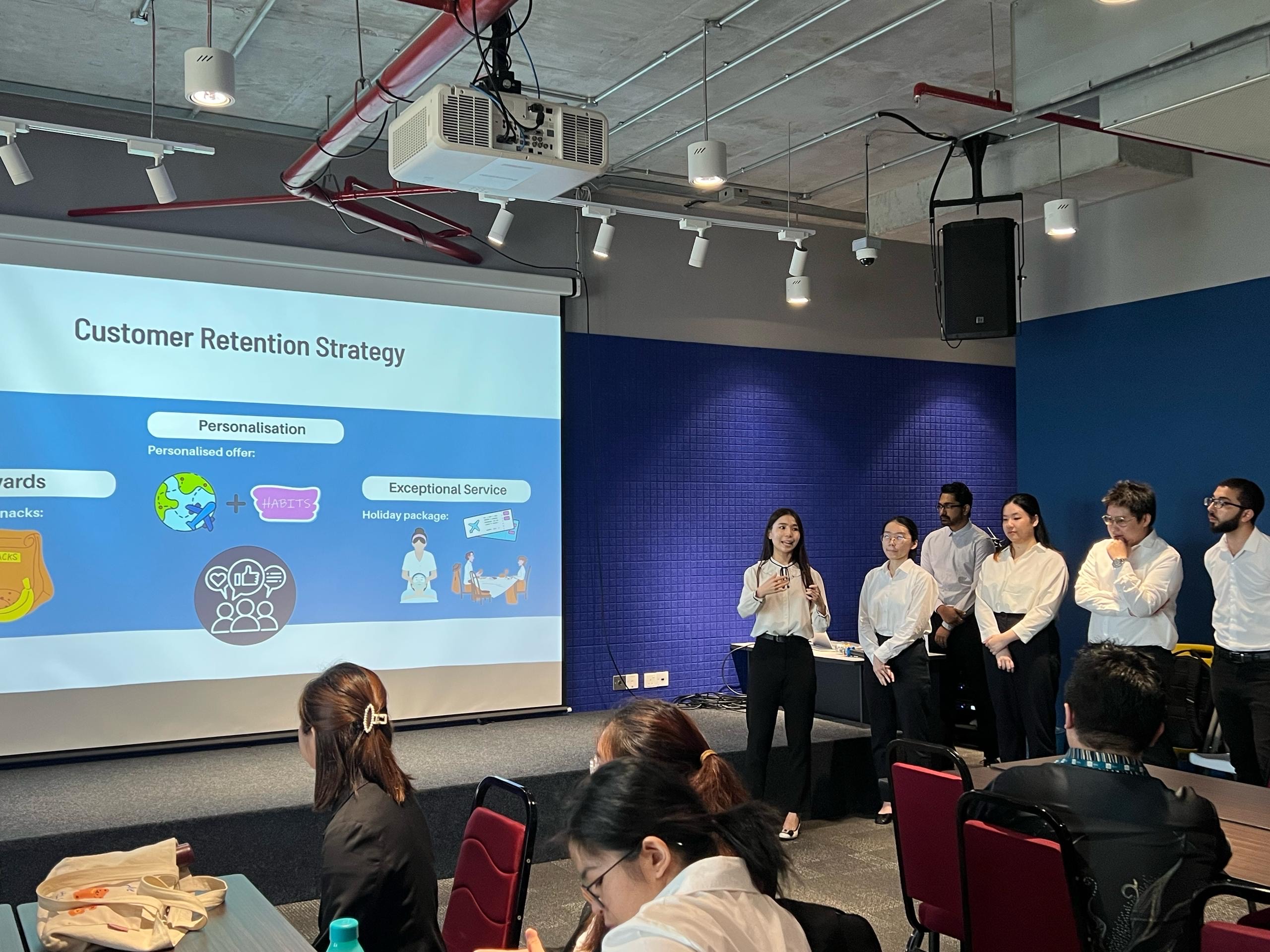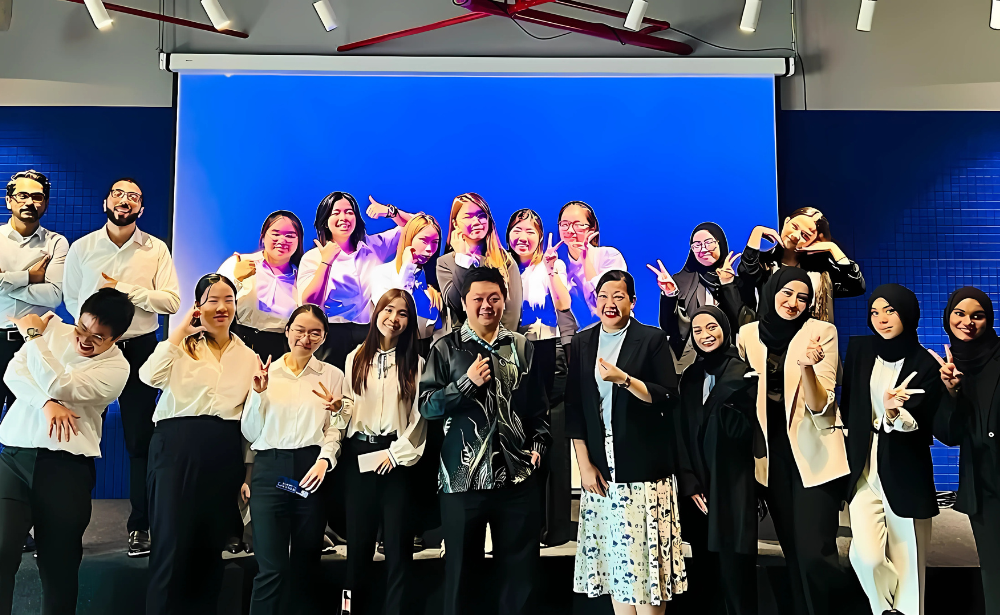Year 2 students enrolled in the Customer Relationship Management (CRM) course recently elevated their learning through a prestigious industry-to-classroom collaboration with Wyndham Suites KLCC. The initiative served as a strategic platform to connect academic concepts with real-world business practices, challenging students to develop CRM business proposals tailored to the hospitality industry.
After a series of internal evaluations, three standout teams were shortlisted to present their proposals directly to Wyndham’s senior management. Each team showcased impressive levels of professionalism, critical thinking, and innovation in their approach to customer relationship strategies. Team G, led by Beh Jia Yi, emerged as the winning group for their proposal that not only aligned with Wyndham’s brand values but also integrated forward-thinking sustainability and customer experience elements.
Wyndham’s management commended the students for their creativity and the depth of their proposals, noting that such academic partnerships play an essential role in shaping future-ready business leaders. They highlighted how the students’ contributions could inspire operational improvements in guest engagement and loyalty-building strategies within the hospitality sector.
This collaboration provided students with a unique opportunity to apply theoretical knowledge in a practical setting—strengthening skills in teamwork, communication, and strategic problem-solving. These are essential competencies as industries seek agile graduates equipped for complex, fast-changing business landscapes. According to the World Economic Forum, problem-solving, self-management, and collaboration are among the top 10 job skills needed by 2025 (source).
The project also reinforces the principles of Sustainable Development Goal 4: Quality Education, by embedding experiential learning into curriculum design. Moreover, by proposing sustainable CRM strategies, students actively supported SDG 12: Responsible Consumption and Production and SDG 8: Decent Work and Economic Growth, contributing to broader goals of innovation and ethical business practices within service industries.
This milestone experience is a testament to the power of industry engagement in transforming classroom potential into boardroom impact. It reflects the growing importance of collaborative education models that equip students not just to learn, but to lead with insight, empathy, and innovation.
This event is organised in support of the following United Nations Sustainable Development Goals (SDG):
Quality Education (SDG 4)
Decent Work and Economic Growth (SDG 8)
Responsible Consumption and Production (SDG 12)
